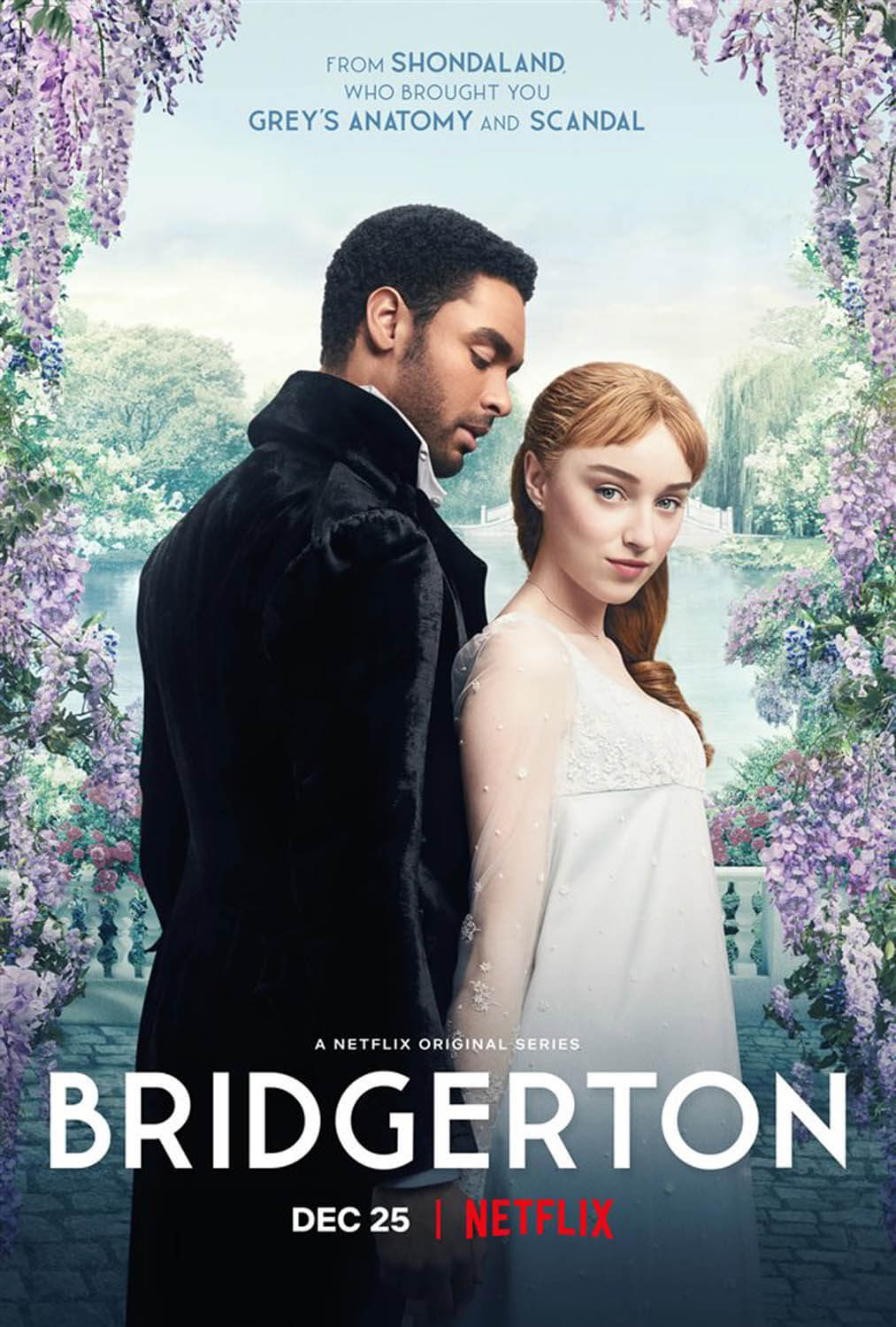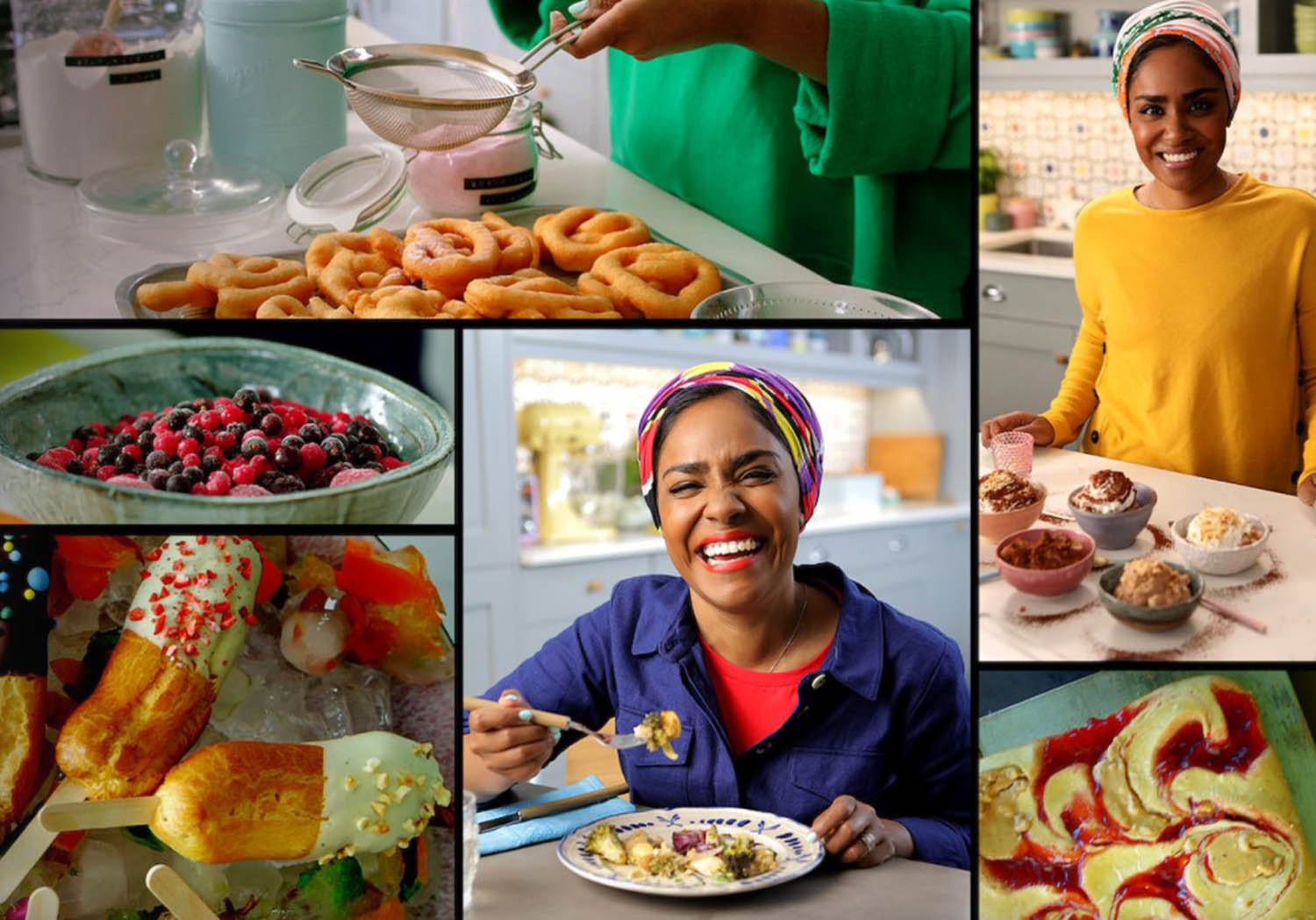Bridgerton is a romantic, gossipy confection



Bridgerton is Shonda Rhimes’ first production for Netflix, and it is a lavish, visually stunning historical romance series. Adapted from Julia Quinn’s series of novels depicting the lives and loves of the copious Bridgerton family in Regency England, the first season of Bridgerton tackles the first book in the series, The Duke and I (though it expertly plants and waters the seeds for several seasons to come). Created by Chris Van Dusen, Bridgerton is everything you want from a romantic comedy-drama: funny but with tangible stakes, leads with sizzling chemistry, and some of the best sex scenes in recent memory. The series uses an intimacy coordinator, Lizzy Talbot, who switched from stunt choreography to intimate choreography, and that background in practical planning and staging shows in Bridgerton. The sex is hot, it’s also never exploitative and genuinely celebrates not only female pleasure, but the particular wavelength lovers can reach when they’re truly invested in one another having a good time. Bridgerton is hot!
The easy description here is “Jane Austen meets Gossip Girl”, but that undersells how Bridgerton interrogates a deeply patriarchal society in which women have almost no rights of their own. Set during the social season of 1813, Bridgerton follows Daphne Bridgerton, eldest daughter of a prominent family, on whose shoulders ride the hope of her whole household. A good marriage for Daphne will set her younger sisters up for good marriages of their own, and Daphne (Phoebe Dynevor) is keenly aware of the pressure on her to make good on the “marriage mart”. It is clear throughout the episodes how unbearable this pressure truly is, for any misstep of Daphne’s could tank her hopes of making a good match. It doesn’t even have to be her mistake, her overbearing elder brother, Anthony (Jonathan Bailey), means well but he underestimates Daphne’s ability to choose her own spouse and almost saddles his sister with the kind of nightmarishly possessive boor one imagines as the worst-case scenario in a society where your marriage is the most important thing that will ever happen to you.
Fortunately, Daphne has an ally in Simon, the Duke of Hastings (Regé-Jean Page). Simon is an old college pal of Anthony’s, and as an unmarried, incredibly handsome, and tremendously rich duke, he is target #1 for ambitious mamas on the marriage mart. Tired of fending off unwanted advances, Simon offers Daphne a deal, to form a pretend courtship with her, which will stave off the worst of the mamas for him, and make Daphne a desirable option on the marriage mart. You see, Daphne, despite being declared the “season’s incomparable” by Queen Charlotte (Golda Rosheuvel), has found her hopes torpedoed by Anthony’s blundering. He drove off all her suitors, and now Daphne needs a reputation reset, because it’s not just the other women on the marriage mart Daphne must contend with, she also has to deal with Lady Whistledown (voiced by Julie Andrews), a mysterious gossip columnist setting all of society ablaze with her scathing scandal sheet. When Lady Whistledown declares Daphne ineligible, it’s time to fight fire with fire and Daphne starts a rumor of her own.
For gossip hounds, Bridgerton is especially sweet, because gossip actively informs this world and how women move in it. Everyone must make adjustments accounting for latest Whistledown on dit, but for the women of London, Whistledown is also a way to control their narrative. Daphne does so through her fake courtship, which suddenly makes her the most desirable young lady in London. But for others, Lady W’s pen can be ruinous. The Featherington clan, a vulgar foil for the “pretty Bridgertons”, suffers mightily at the hand of Lady W. They are constantly picked on for their loud, colorful frocks, for their graspingly ambitious mama, and the three Featherington daughters are negatively compared to their gorgeous country cousin, Marina (Ruby Barker). But Marina has a secret that, if exposed, would devastate not only her life, but lives of the Featheringtons as well. Lady Featherington (Polly Walker) is so awful you sort of don’t care what happens to her, but what happens to Mama Featherington also happens to her youngest daughter, Penelope (Nicola Coughlan), who is sweet and far cleverer than her family deserves. Penelope also has a massive crush on Colin Bridgerton (Luke Newton), another person who ends up on the wrong side of Lady W.
Bridgerton is very concerned with how gossip and the manipulation thereof can make or break a person in a society as strict as Regency England. When Daphne is almost outmaneuvered by that boorish, hateful beau, her mother, Violet (Ruth Gemmell), organizes a whisper campaign to try and save her daughter. “We shall do what women do,” she declares, “we shall talk.” This scene reminds me of Natalie Portman’s stricture to “gossip well”, a reminder that gossip is not just idle talk but can be an actively powerful tool in society, particularly to bring about change when traditional avenues seem closed. And for the women of Regency England, who have so little agency of their own, gossip is often their only way out of bad situations. It is one of the only forms of control women have in this society, and information is a vital part of how women protect themselves in this life. Violet’s whisper campaign doesn’t just work for Daphne, it outs a negative influence all women would want to avoid.
Daphne and Simon’s fake relationship goes about as well as you’d expect, in that it quickly becomes a real relationship. But there is a major conflict here, as Simon is carrying significant trauma from his childhood and an emotionally abusive father. Daphne’s parents were truly in love, she grew up in a house full of happiness and children, but Simon’s upbringing was much colder and more isolated. They have a fundamental conflict in what they want from life and their marriage that resonates beyond the confines of a historical drama. At heart, Bridgerton is about how two people navigate a relationship and build their new family, about their communication and how the poisonous bonds of the past can infect a positive future. There is real poignancy in the back half of the season as Daphne and Simon navigate their new lives together.
But there is one tricky scene, a particular sex scene that crosses a non-consensual line. This scene is right out of the book, and while I appreciate some steps Bridgerton takes to mitigate its non-consensual nature, ultimately it does not quite succeed in doing so. At their lowest point, Daphne and Simon hurt each other terribly, and then the question becomes how do they rebuild their trust and the foundation of their relationship, but there is no real acknowledgment of the severity of what Daphne does. Simon’s issue is discussed ad nauseum, but Daphne’s transgression is largely left alone. It is a misstep in a show that is otherwise incredibly smart about sex on screen, and while I understand this is a major plot point from the book, the book is also almost 20 years old. Sometimes it’s okay to imagine new things.
On the whole, though, Bridgerton is a sheer delight. The Regency setting is beautifully, if whimsically, realized, and the multicultural casting and orchestral pop songs on the soundtrack make it feel fresh and current. (Though there is a largely unnecessary explanation for the multiculturalism of the show, which is basically that this alternate England eliminated racism by 1813, yet it never addresses where England’s money is coming from—are they still in the slave trade? Are they still colonizing half the world? Bridgerton doesn’t care!) Phoebe Dynevor and Regé-Jean Page have electrifying chemistry, and fans of the book will love to see beloved characters like Lady Danbury (Adjoa Andoh) and Penelope Featherington come to such vivid life. This show is spectacularly well cast and does an amazingly good job of setting up future seasons (Anthony is SUCH a prick, I kept yelling for Kate to come and get her man at my TV), and the expansive Bridgerton clan feels like a real family, squabbles and all. Simply put, I haven’t loved a television show this much since Justified. Bridgerton is exactly the sexy, fun, gossipy, candy-colored confection we need to close out this terrible year.
Bridgerton is streaming on Netflix from December 25.
